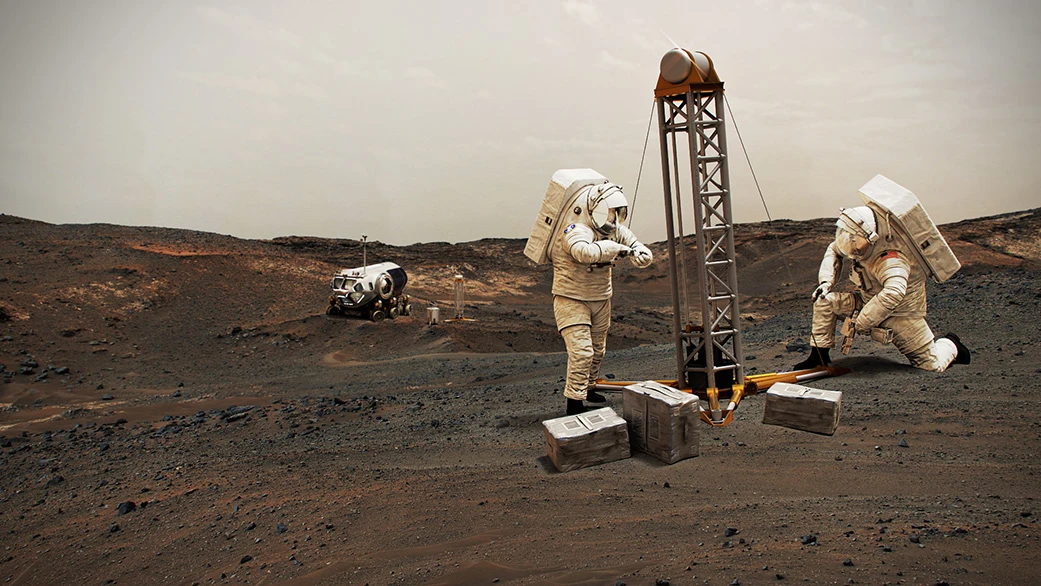12 Space Medicine Findings from 2023 That Could Help Astronauts Reach Mars One Day
Space medicine is a continuously growing field, essential for humanity’s interplanetary aspirations. As we venture towards settling Mars, the advancements in space medicine play a pivotal role. In the year 2023, several groundbreaking findings have emerged, paving the way for safer and more sustainable space travel. Let’s delve into the noteworthy discoveries that could shape the future of Space Exploration.
Hibernation for Space Travel
With the prospect of long-duration space Missions, such as the journey to Mars, scientists are exploring hibernation practices for astronauts. This innovative approach seeks to counter the physiological effects of extended microgravity exposure and conserve essential resources during the voyage.
The concept draws inspiration from animal hibernation and is being investigated to mitigate bone and muscle loss, as seen in astronauts on the International Space Station (ISS). nasa‘s research on arctic squirrels’ hibernation methods presents promising implications for protecting astronauts from microgravity-induced Health challenges.
Impact of Microgravity on the Brain
A significant study in 2023 focused on understanding how spaceflight affects the human brain. Researchers discovered that prolonged exposure to microgravity led to the enlargement of brain ventricles, highlighting the potential cognitive challenges for astronauts embarking on extended space Missions.
The findings raise concerns about the impact of altered gravitational conditions on brain function, emphasizing the need for further research to safeguard the cognitive Health of future space explorers.
Social Dynamics in Offworld Settlements
In the quest to establish a functional Mars settlement, intriguing insights emerged regarding the psychological and social considerations. A study suggested that a group of at least 22 individuals, predominantly with agreeable personality traits, could form a resilient and enduring community in the offworld Environment.
Immunological Challenges in Space
The effects of microgravity on the immune system garnered attention in 2023. Through simulated microgravity conditions, researchers observed changes in T cell behavior, indicating potential immune system disturbances during space Missions.
These findings underscore the necessity of understanding and addressing immunological adaptations in space to ensure the Health and well-being of astronauts in extraterrestrial environments.
Cardiovascular research in Microgravity
As humans venture into prolonged space Missions, the impact of microgravity on the cardiovascular system has become a focal point of research. Innovative studies are exploring the behavior of lab-grown human hearts in microgravity, offering valuable insights into cardiovascular adaptations in space.
Contaminant Concerns in Space Habitats
The cleanliness and safety of space habitats came under scrutiny, revealing chemical contaminant concentrations on the ISS that raised cautionary flags. These findings prompted discussions about maintaining a healthy living Environment for astronauts and the development of comprehensive space hygiene protocols.
Reproduction and Bone Health in Space
Advancements in space medicine extended to the realm of reproduction and bone Health, with groundbreaking experiments demonstrating the feasibility of mammalian embryo development in microgravity. Additionally, innovative drugs targeting microgravity-induced bone loss showed potential in preserving musculoskeletal Health during space Missions.
Sleep Patterns and Psychological Well-Being
The challenges of maintaining healthy sleep patterns in space were addressed through the development of specialized lighting systems to regulate astronauts’ circadian rhythms. This Innovation aims to alleviate the psychological and physiological strain of living and working in microgravity environments.
Gender Dynamics in Long-Duration Missions
Thought-provoking debates arose regarding the potential advantages of all-female crews for future space Missions. Scientific inquiries explored metabolic advantages and operational considerations, sparking conversations about gender-inclusive approaches to Space Exploration and mission planning.
Physiological Adaptations to Space Conditions
A profound understanding of physiological changes in astronauts returning from long-term space Missions revealed intriguing insights into fat distribution in bone marrow and its implications for red blood cell production. These findings shed light on the intricate adaptations of the human body to the challenges of space travel.
Pioneering Microgravity Experiments
Looking ahead to the future, the upcoming Ax-3 mission promises to expand the frontiers of microgravity Health experiments. Equipped with innovative studies on disease detection, bone density, and cognitive function in space, this mission holds the potential to revolutionize space medicine and its impacts on terrestrial Healthcare.
The advancements in space medicine throughout 2023 not only signify progress towards interplanetary goals but also offer transformative insights that could reshape Healthcare on Earth. As we anticipate the remarkable discoveries that await in the realm of space medicine, the year 2023 stands as a testament to the relentless pursuit of knowledge and Innovation in our quest to extend the boundaries of human exploration.
Source: space








No Comments